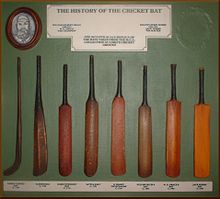Summary | Excerpt | Reading Guide | Reviews | Beyond the Book | Read-Alikes | Genres & Themes | Author Bio

This article relates to Homesick
In Homesick, Victor, a Sri Lankan immigrant to England, views his native country's cricket team as his own. He owes allegiance to them and takes pride in their successes. Roshi Fernando uses this sport as a metaphor for her character's desire to break free of colonial ties.
 The game of cricket is defined by Merriam-Webster as "a game played with a ball and bat by two sides of usually 11 players each on a large field centering upon two wickets each defended by a batsman." Possibly an ancestor of American baseball, the sport plays somewhat similarly. One person, called the "bowler," pitches (or "delivers") a hard leather ball down a 22-yard-long strip of dirt (called the "pitch") toward the other team's batter who is protecting his team's wicket from being hit by the ball. The batter defends the wicket by hitting the ball with a flat wooden bat, and he then tries to score as many runs as possible. Meanwhile, the pitching team members field the hit ball and attempt to get the batter out before he's able to run to the other side of the pitch. (For more information on the official rules, visit the International Cricket Council website.)
The game of cricket is defined by Merriam-Webster as "a game played with a ball and bat by two sides of usually 11 players each on a large field centering upon two wickets each defended by a batsman." Possibly an ancestor of American baseball, the sport plays somewhat similarly. One person, called the "bowler," pitches (or "delivers") a hard leather ball down a 22-yard-long strip of dirt (called the "pitch") toward the other team's batter who is protecting his team's wicket from being hit by the ball. The batter defends the wicket by hitting the ball with a flat wooden bat, and he then tries to score as many runs as possible. Meanwhile, the pitching team members field the hit ball and attempt to get the batter out before he's able to run to the other side of the pitch. (For more information on the official rules, visit the International Cricket Council website.)

First played in England in the 1500s, cricket spread through British colonial territories in the 1800s, and the English initially used the game as a way of delineating clear boundaries between the rulers and the ruled. According to the International Slavery Museum,
"Cricket was watched only by 'highly respectable ladies and gentlemen', while the plantation owners prepared the cricket field and provided the hospitality... Cricket was taught in missionary schools in order to impart English values to the indigenous people." However, over time, slaves came to make the sport their own, and it shed its roots as a tool for setting social boundaries. Along the way, the game became deeply symbolic of people trying to free themselves from oppression.
 As in Homesick, cricket's use as metaphor is apparent in the immensely popular Bollywood film, Lagaan (2001). The movie won an Oscar nomination for Best Foreign Language Film and enjoyed a cult following in the United States. In it, Indian farmers rebel against a "lagaan" - a tax imposed by the British overlords. Looking to break the yoke, they agree to a game of cricket as the deciding factor. If the Indian villagers win, there will be no tax, if they lose the tax will be tripled. The roaring success of this movie in India and beyond likely validates that many still use the game as an equalizer, especially in places where colonial wounds may remain raw.
As in Homesick, cricket's use as metaphor is apparent in the immensely popular Bollywood film, Lagaan (2001). The movie won an Oscar nomination for Best Foreign Language Film and enjoyed a cult following in the United States. In it, Indian farmers rebel against a "lagaan" - a tax imposed by the British overlords. Looking to break the yoke, they agree to a game of cricket as the deciding factor. If the Indian villagers win, there will be no tax, if they lose the tax will be tripled. The roaring success of this movie in India and beyond likely validates that many still use the game as an equalizer, especially in places where colonial wounds may remain raw.
For more information and images, check out my Pinterest board for Homesick or read the BBC article entitled "Cricket and the Abolition of Slavery." You can also click on the video below to watch the trailer for Lagaan:
Photo of cricket game by ~Prescott
Photo of bats on Wikimedia Commons
Filed under Cultural Curiosities
![]() This "beyond the book article" relates to Homesick. It originally ran in July 2012 and has been updated for the
July 2013 paperback edition.
Go to magazine.
This "beyond the book article" relates to Homesick. It originally ran in July 2012 and has been updated for the
July 2013 paperback edition.
Go to magazine.
Your guide toexceptional books
BookBrowse seeks out and recommends the best in contemporary fiction and nonfiction—books that not only engage and entertain but also deepen our understanding of ourselves and the world around us.